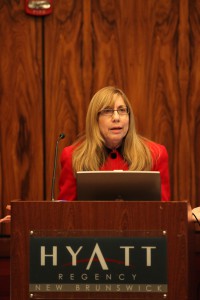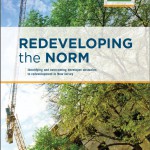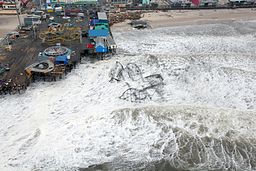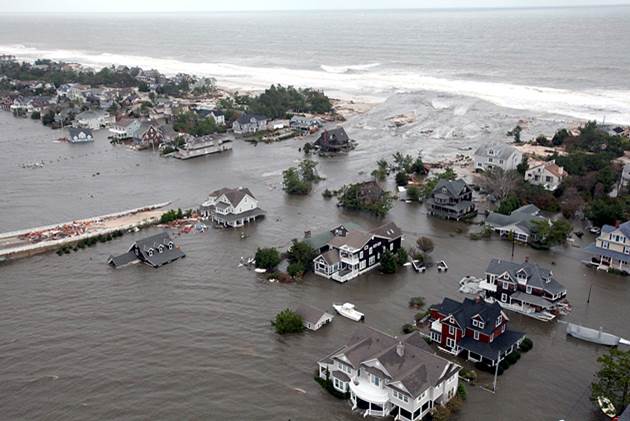New Jersey Future Blog
Forum Feature: What’s Plan B? Energy Resiliency in Redevelopment
March 20th, 2014 by Leah Yasenchak
“If UPS tells Amazon that their guys are on strike, you’d better believe that Amazon has a back-up plan – they are going to call Fed Ex. If PSE&G calls us and tells us they can’t get power to us, we’d better have a back-up plan.” These were the cautionary words of Caroline Ehrlich, chief of staff of Woodbridge Township, at a session on energy resiliency at New Jersey Future’s Redevelopment Forum.
Energy resiliency – power generation and distribution that is less prone to failure; allows a basic supply to critical facilities in the event of a failure; and offers faster recovery of the overall system – was the focus of this session, and panelists discussed various ways of ensuring that power is available during extreme weather or other emergencies. Solutions of two different types were discussed – supply alternatives and asset isolation and protection.
Mark Warner of Sustainable Jersey explained that supply alternatives range in complexity and capacity from a diesel backup generator, which offers a very basic level of resiliency in power generation, to a natural gas-based generator; natural-gas fuel cell; combined heat and power facility; and finally to renewables such as solar, modified to be able to continue to function during an outage.
Micro-gridding – the ability to separate from the larger distribution system – was discussed as an important strategy to achieve resiliency in distribution. Jack Fehn of the College of New Jersey explained how the college uses combined heat and power generation for efficient, locally-controlled power, and how the college has the ability to control the grid that powers its facilities. Ehrlich said Woodbridge is considering installing underground wiring to connect its critical facilities with local power generation, and developing a micro-grid to ensure that the township’s power can be isolated from the larger grid for faster recovery.
However, running underground wiring and installing the technology necessary to separate from the grid is expensive. Michael Winka, senior policy advisor for clean energy and smart grid with the New Jersey Board of Public Utilities, spoke about a new program the board expects to be approved under the CDBG-Disaster Recovery program that would assist communities in funding these type of energy resiliency projects. Modeled after the Environmental Infrastructure Trust, federal funds would seed a revolving loan fund that would be available at a low interest rate for communities to use to invest in resilient energy generation, protection and distribution.

















